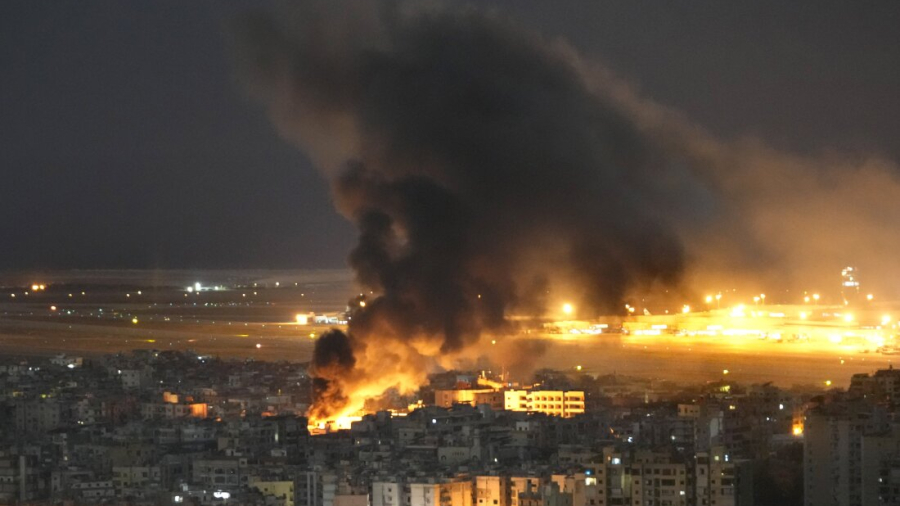The Israeli military launched at least five airstrikes on Hezbollah-controlled southern suburbs of Beirut on Tuesday, intensifying its offensive in Lebanon as tensions between the two sides continue to escalate.
The strikes come after Israeli Defence Minister Israel Katz ruled out any ceasefire in Lebanon until Israel’s military objectives are fully achieved.
The airstrikes shook the Lebanese capital mid-morning, with smoke rising from the southern suburbs following the blasts. The Israeli military had earlier issued a warning on social media, identifying 12 sites in the area and cautioning residents that they were located near Hezbollah facilities. No immediate reports of casualties have been made, as many residents have already fled the region since the Israeli bombing campaign began in September.
In northern Israel, air raid sirens sounded as residents rushed for shelter. The Israeli military reported the launch of several “suspicious aerial targets” from Lebanon, though no injuries were reported.
The current conflict, which was ignited by the ongoing war in Gaza, has seen mounting tensions along the Lebanese-Israeli border over the past year. In September, Israel launched a series of airstrikes targeting wide areas of Lebanon and deploying ground troops into southern Lebanon in a bid to neutralize Hezbollah forces.
Over the past seven weeks, Israel has dealt significant blows to Hezbollah, including the reported killing of several top leaders, among them Hassan Nasrallah. Large sections of Hezbollah-controlled areas in southern Beirut have been destroyed, while many border villages in southern Lebanon have also suffered heavy damage.
Israel’s Defence Minister Katz, who held his first meeting with the Israeli general staff on Monday, reaffirmed that there would be no ceasefire until Israel’s goals in Lebanon are met. “Israel will not agree to any arrangement that does not guarantee Israel’s right to enforce and prevent terrorism on its own, and meet the goals of the war in Lebanon—disarming Hezbollah and its withdrawal beyond the Litani River, and returning the residents of the north safely to their homes,” Katz stated.
Earlier on Monday, Israel’s Foreign Minister Gideon Saar acknowledged “certain progress” in ceasefire talks but emphasized that the conflict with Hezbollah was far from over. He highlighted that enforcement of any ceasefire agreement would be the primary challenge, adding that Hezbollah remains committed to a prolonged conflict with Israel, as evidenced by its continued rocket attacks.
Meanwhile, the Lebanese government, which includes Hezbollah members, has repeatedly called for a ceasefire based on the full implementation of a United Nations resolution that ended the 2006 war between Hezbollah and Israel. The resolution mandates that the area south of the Litani River be free of all weapons except those controlled by the Lebanese state. Both Israel and Lebanon have accused each other of violating this agreement.
Israel’s offensive has displaced over one million people in Lebanon over the past seven weeks, according to the Lebanese health ministry. Since the hostilities erupted a year ago, Israeli attacks have killed 3,243 people and injured 14,134 in Lebanon. These figures do not differentiate between civilians and combatants. Hezbollah’s retaliatory attacks, which have targeted northern Israel, the Israeli-occupied Golan Heights, and southern Lebanon, have killed approximately 100 civilians and soldiers over the past year.
